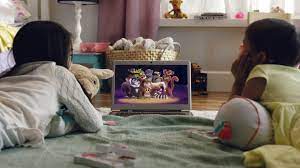NCTA Decries Kids TV Regulatory Disparity with OTT
Suggests FCC should jettison children's programming regs as outdated

WASHINGTON—For several years now cable operators have been arguing that the FCC needs to recognize the shift in children's video consumption from "'traditional linear television' to unregulated online programming," and deregulate accordingly.
The 1990 Children's Television Act set limits on ads in children's programming and the FCC in 2004 limited the display of website addresses during children's programming.
NCTA told the FCC this week, as it did back in 2018, that it was time to eliminate those restrictions.
Also: FCC's O'Rielly Says Kids TV Rules Have Not Produced Great TV
In a July 1 filing, in response to a request for comment on the FCC's upcoming report on the state of competition in the communications marketplace, NCTA said that video competition among MVPDs is "vibrant," and video regulation should reflect that.
It said that means that Congress' concerns--some 30 years ago--about a lack of competition to cable and potential anticompetitive conduct by cable--have been obviated by that robust competition, including from over-the-top video providers like Netflix.
NCTA suggested that children's regulations imposed on cable (and broadcast) but not over-the-top "artificially distort and suppress the proconsumer benefits of competition."
Get the TV Tech Newsletter
The professional video industry's #1 source for news, trends and product and tech information. Sign up below.
"[E]ntities that compete in the provision of like services should not face different public interest or customer service obligations, which is both arbitrary and capricious and skews the marketplace," NCTA said. "For example, the Commission should take a fresh look at its children’s television advertising rules, which should at the least be revised consistent with NCTA’s prior recommendations. None of the new online video providers that target children—such as YouTube, Netflix, and Amazon—are
burdened by FCC restrictions on advertising. This disparity negatively impacts competition in children’s television programming. This is particularly detrimental given that cable networks have invested countless hours and billions of dollars in developing trusted brands that serve the programming needs of parents and children."
And while not calling out program access and carriage regs by name as some others in need of jettisoning, NCTA might as well have. "[T]t is time for regulations premised on a lack of competition in the video marketplace to be repealed," NCTA also told the Commission in its advice on the upcoming competition report.
This article originally appeared on TV Tech sister brand B+C.
Contributing editor John Eggerton has been an editor and/or writer on media regulation, legislation and policy for over four decades, including covering the FCC, FTC, Congress, the major media trade associations, and the federal courts. In addition to Multichannel News and Broadcasting + Cable, his work has appeared in Radio World, TV Tech, TV Fax, This Week in Consumer Electronics, Variety and the Encyclopedia Britannica.

